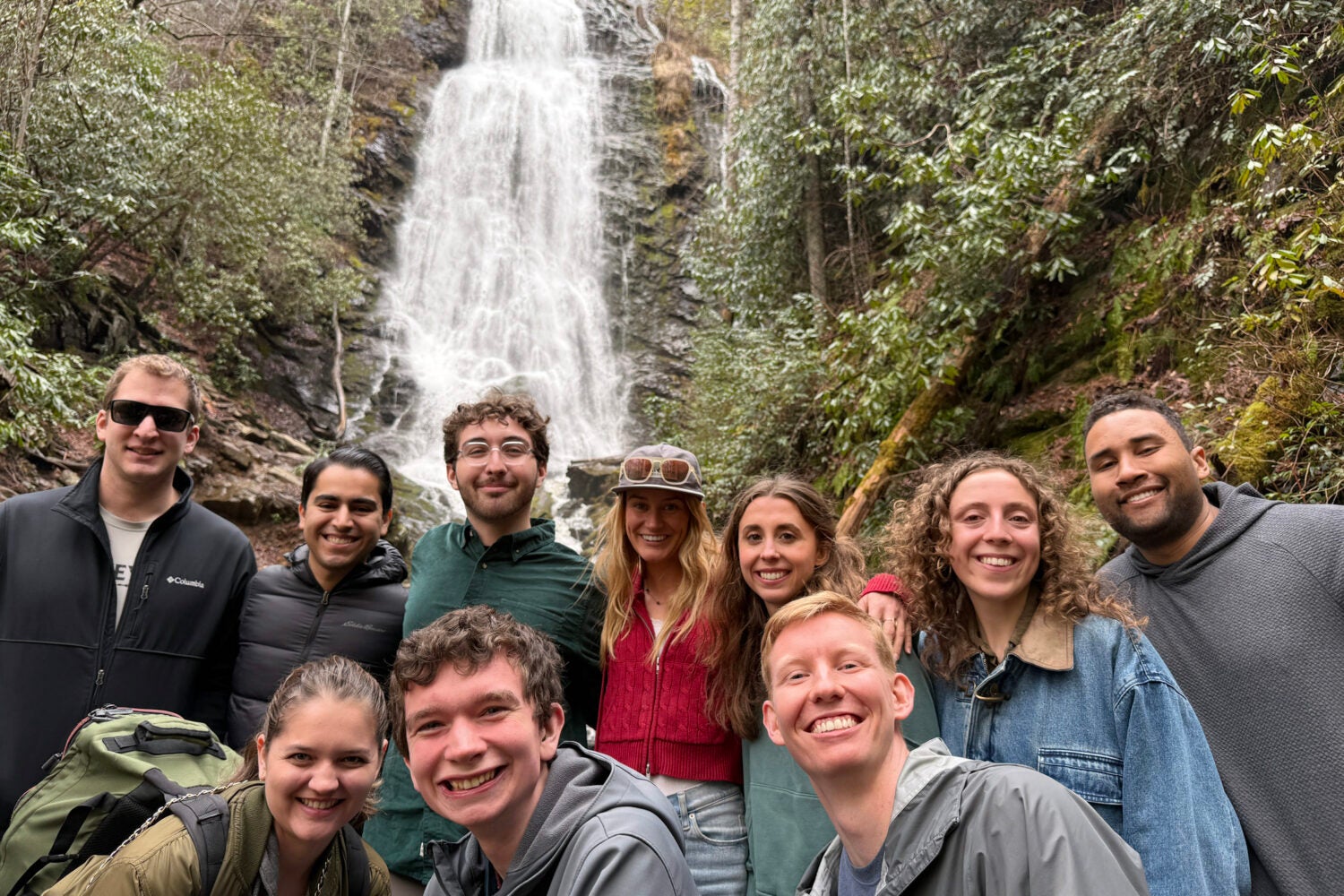Last September, soon after Hurricane Helene’s ravaged large sections of North Carolina, members of a local nonprofit reached out to Harvard for help. That assistance arrived last month in the form of 10 law school students who traveled south as part of a pro bono spring break legal aid trip to assist those still struggling to recover from the devastating tropical storm.
For Drew Lane ’26, the work was deeply personal. Growing up in North Carolina, Lane had often seen destructive weather blow through, including 1999’s Hurricane Floyd, which flooded his grandmother’s basement, and a 2002 ice storm that knocked out power for a couple of weeks. But he’d never experienced anything like the deadly destruction of Hurricane Helene.
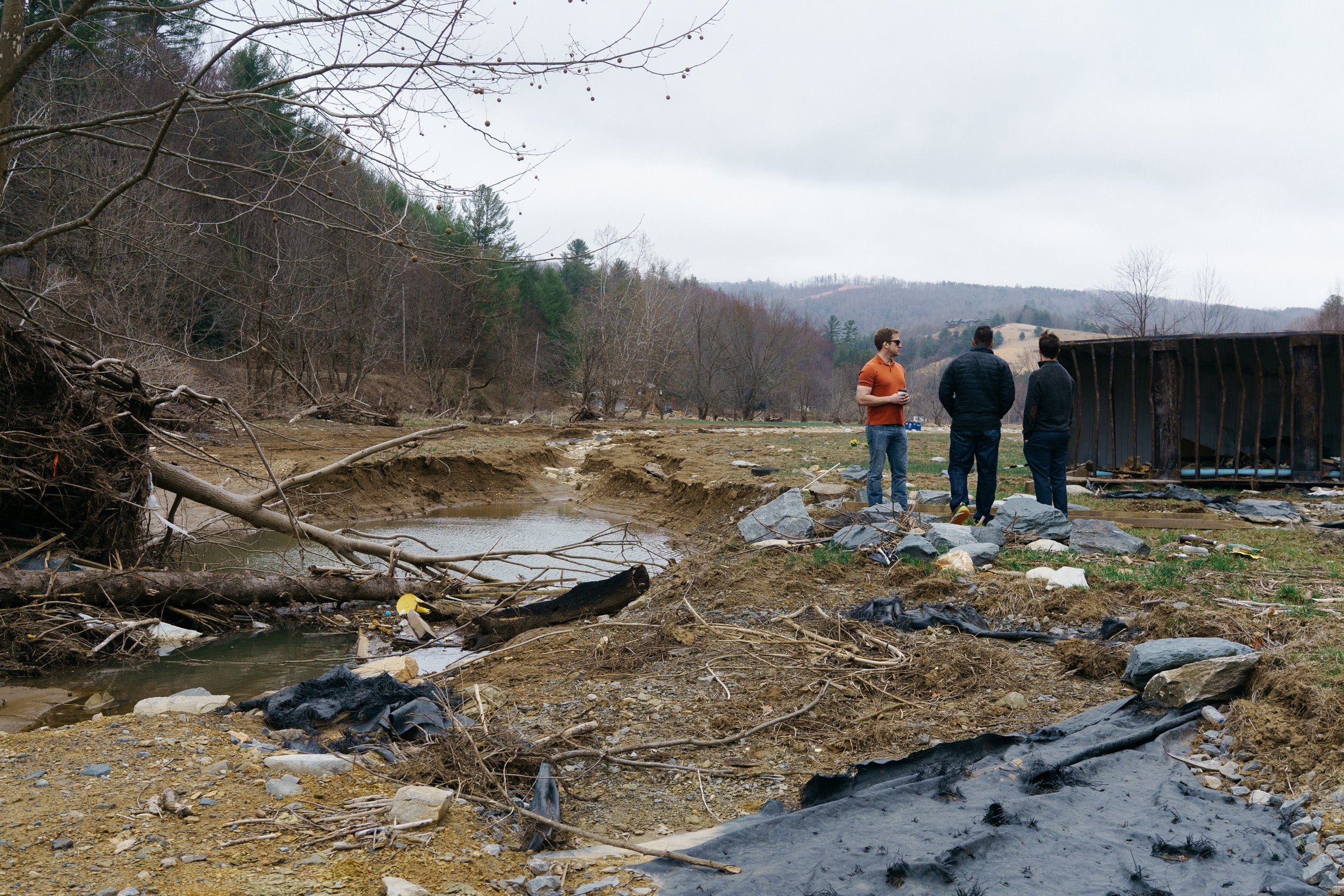
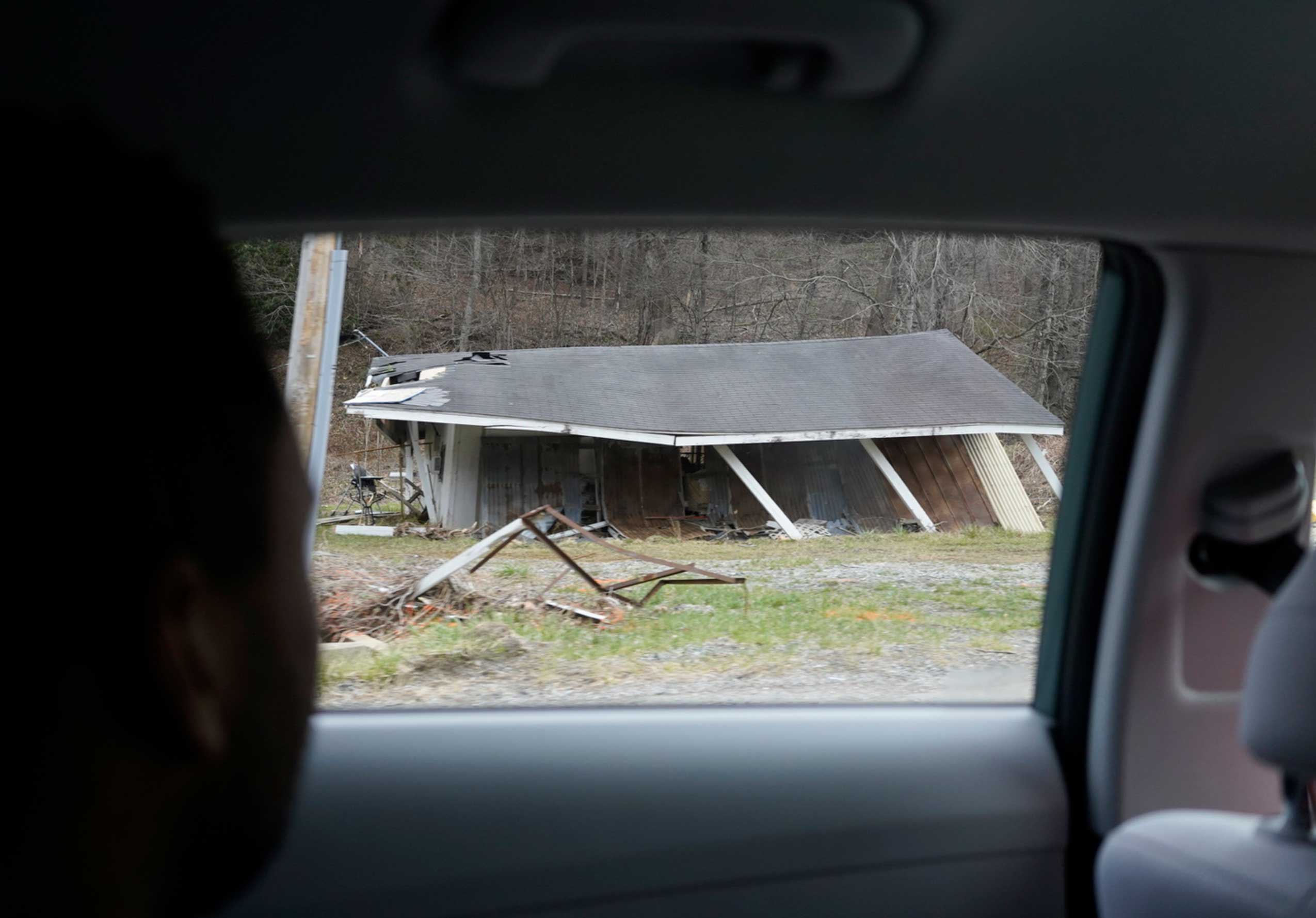
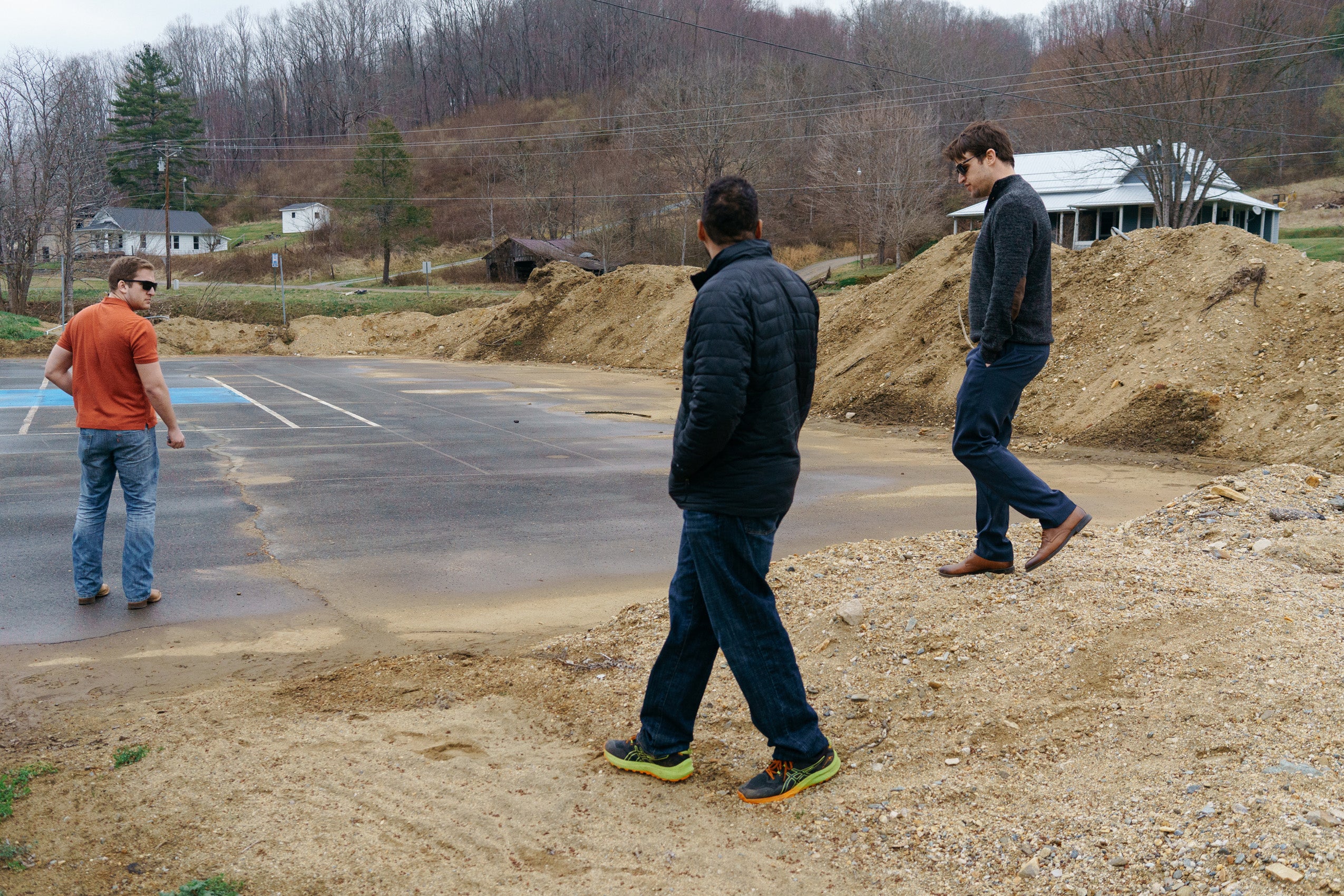
On campus last fall, Lane at first assumed that Helene was just another strong storm heading up the coast until his phone began lighting up with texts from classmates asking if his family members were safe. Thankfully, they were.
But many people, including residents in two of the hardest-hit communities, Asheville and Boone, weren’t so lucky. “Those are major destinations for us in North Carolina, and to hear they were devastated and completely cut off was shocking,” said Lane. “When Harvard’s pro bono office reached out about the possibility of going on this trip, I jumped at the opportunity to do what I could and see how people were doing for myself because it was so difficult just watching it from afar.”
For Harvard’s lawyers in training, regularly helping those in need, from clinical work to other hands-on projects with underserved clients, is central to the Law School experience. Many students also give back by taking part in the annual spring break trip coordinated by the school’s Office of Clinical and Pro Bono Programs for the past 20 years.
Over that time, more than 500 Law students have taken part in the service trips, helping residents recover from natural disasters (including after Hurricane Katrina in 2005, and Hurricane Florence in North Carolina in 2019), conducting immigration work along the southern border, and supporting cash bail and private probation reform efforts in various states.
This year’s spring break pro bono projects included legal aid work in the Boston area, asylum work in California with the San Diego-based nonprofit Jewish Family Service, and the Hurricane Helene trip organized by the nonprofit Legal Aid of North Carolina.
“We try to emphasize to the students that, with only a week’s worth of work, they aren’t going to change the world,” said Lee Mestre, the office’s associate director, who has helped to organize the trips since 2005. “But we also stress that they are providing critical help for those on the ground and gaining the kind of experience they can’t get in class that will serve them well beyond law school.”
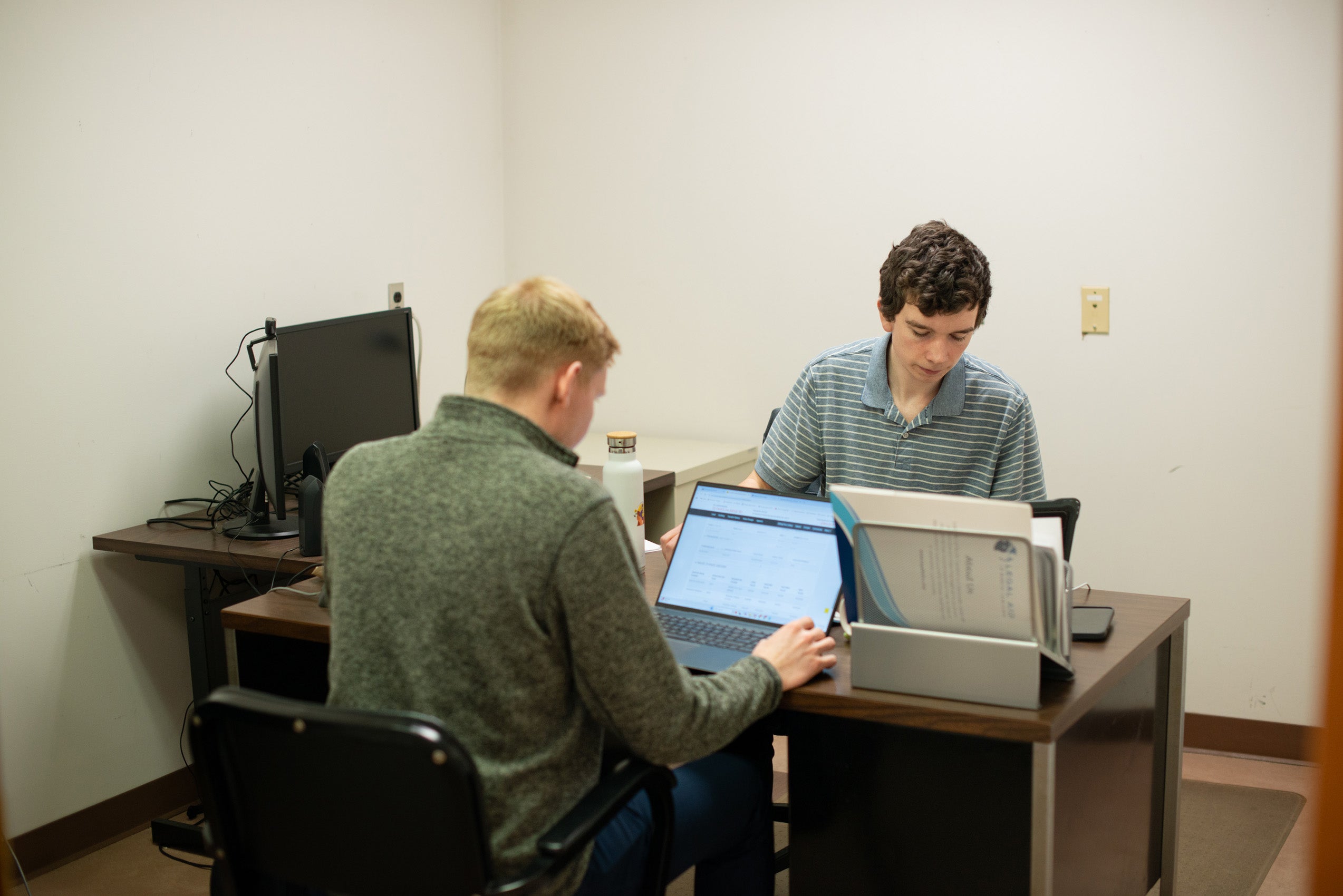
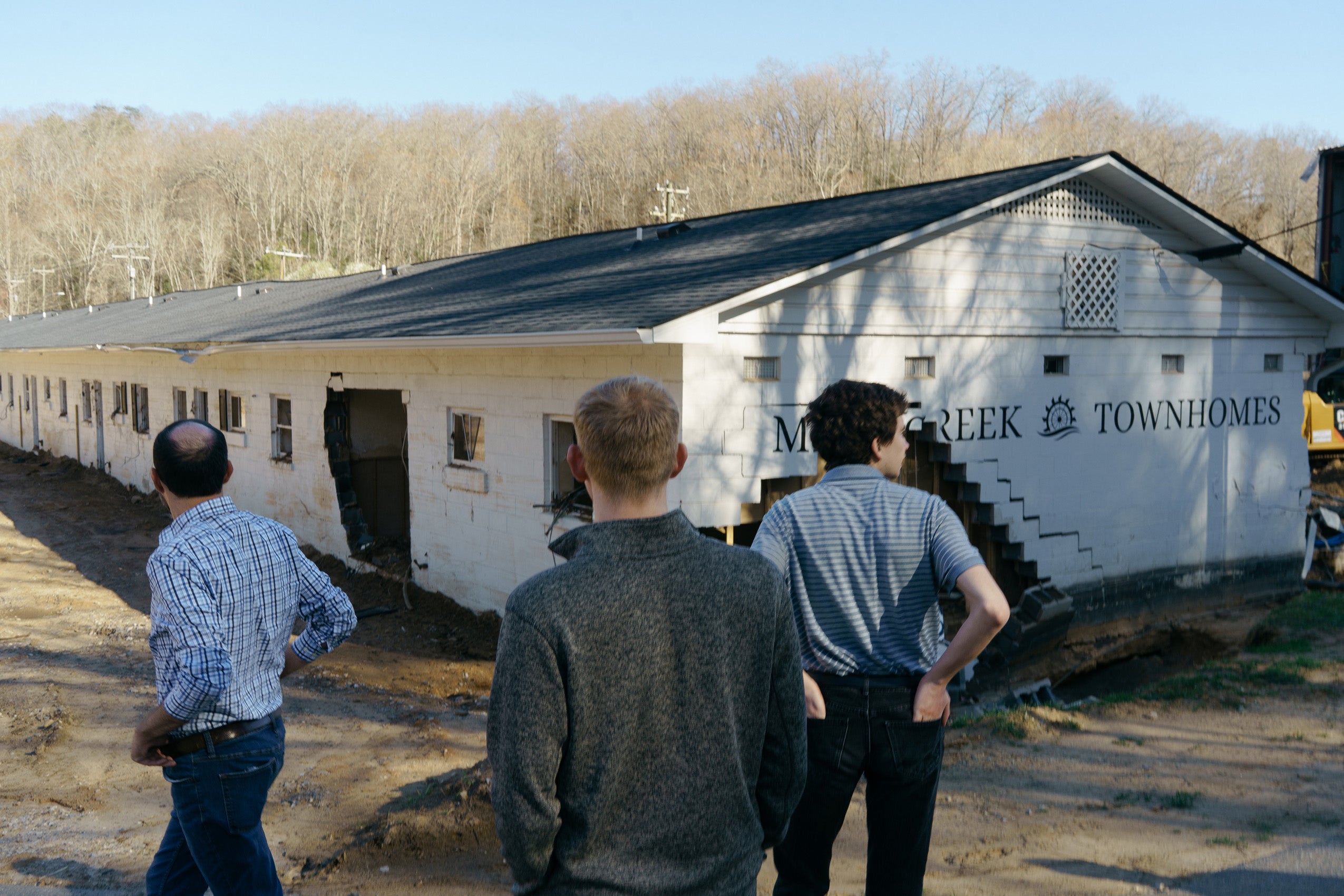
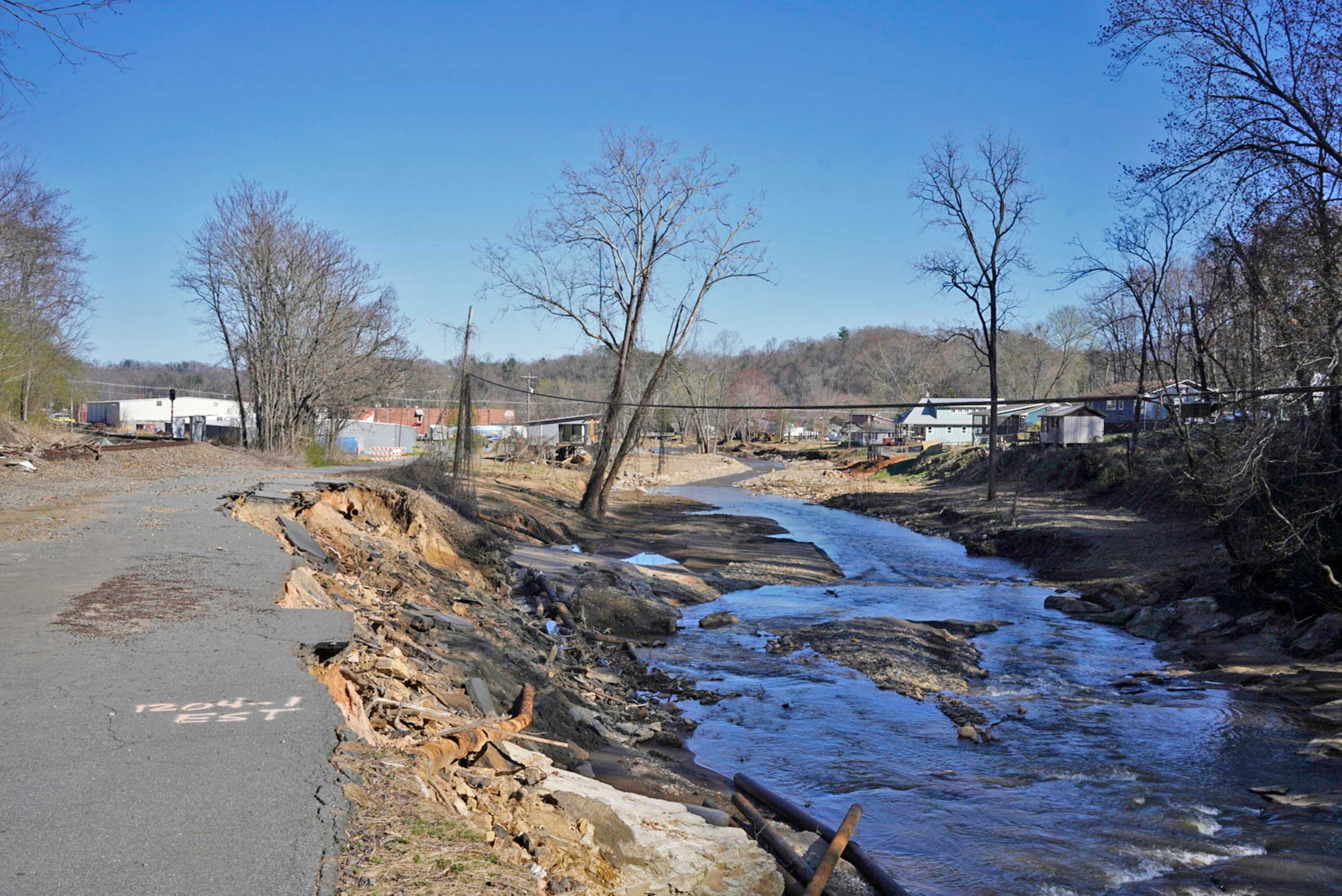
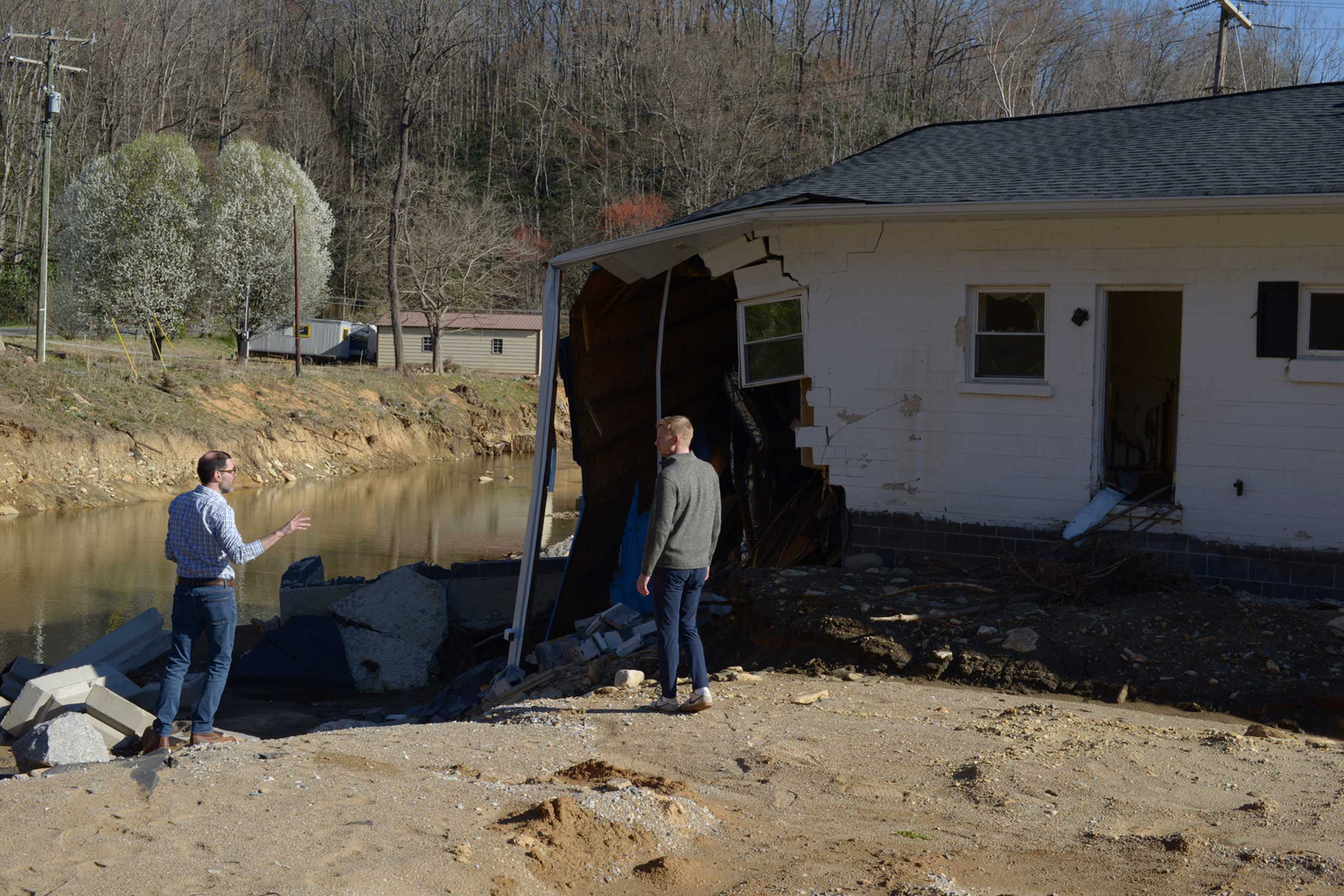
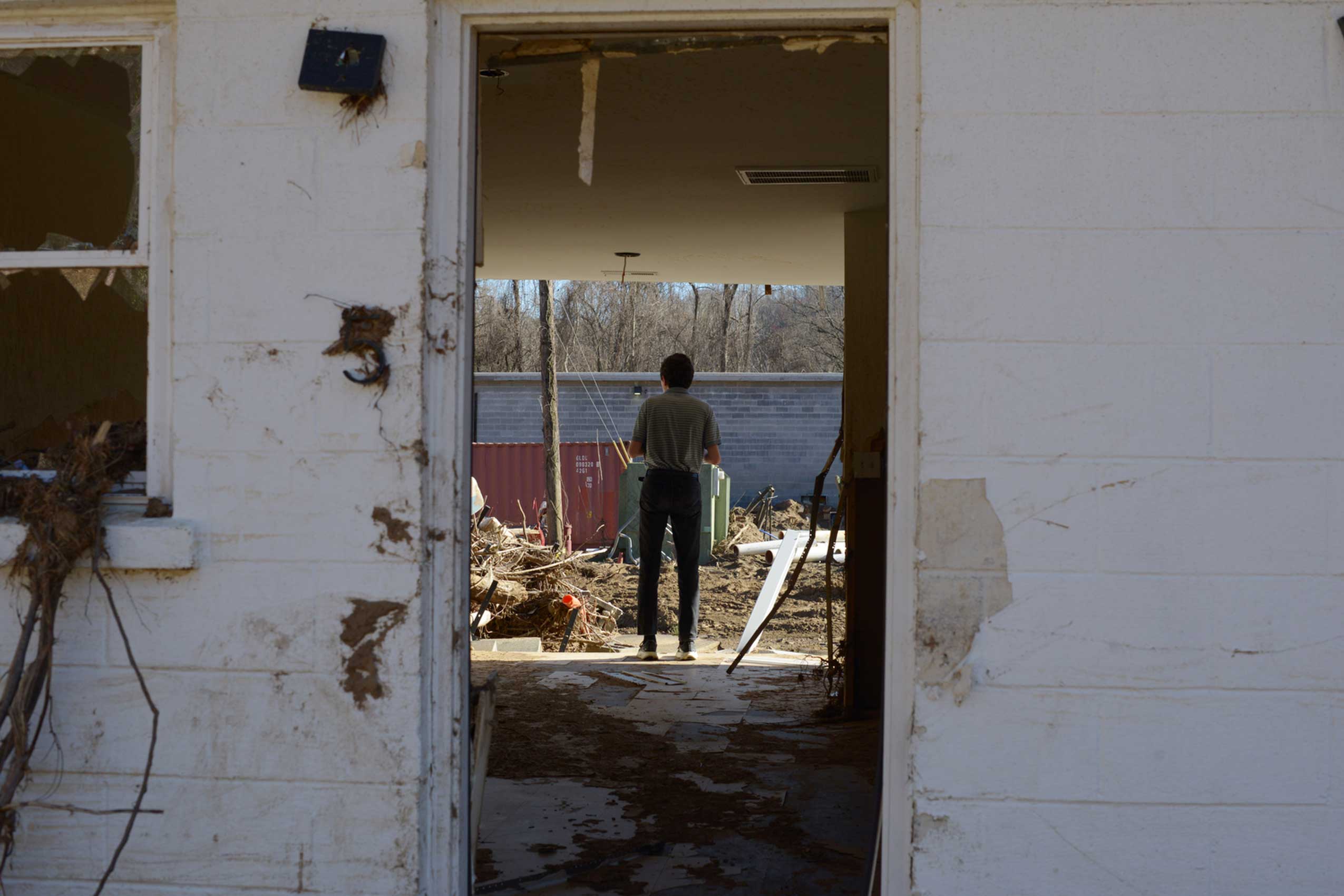
And the learning goes both ways.
Lesley Albritton, chief operations officer at Legal Aid of North Carolina, noted how important the student visits are, both in terms of helping ease workloads (the students helped open 50 new cases during the trip) and bringing fresh perspectives to daily tasks. “We are always just blown away by how creative and enthusiastic the law students are” said Albritton. “And we always pick up things and approaches from them that we wouldn’t necessarily have thought of.”
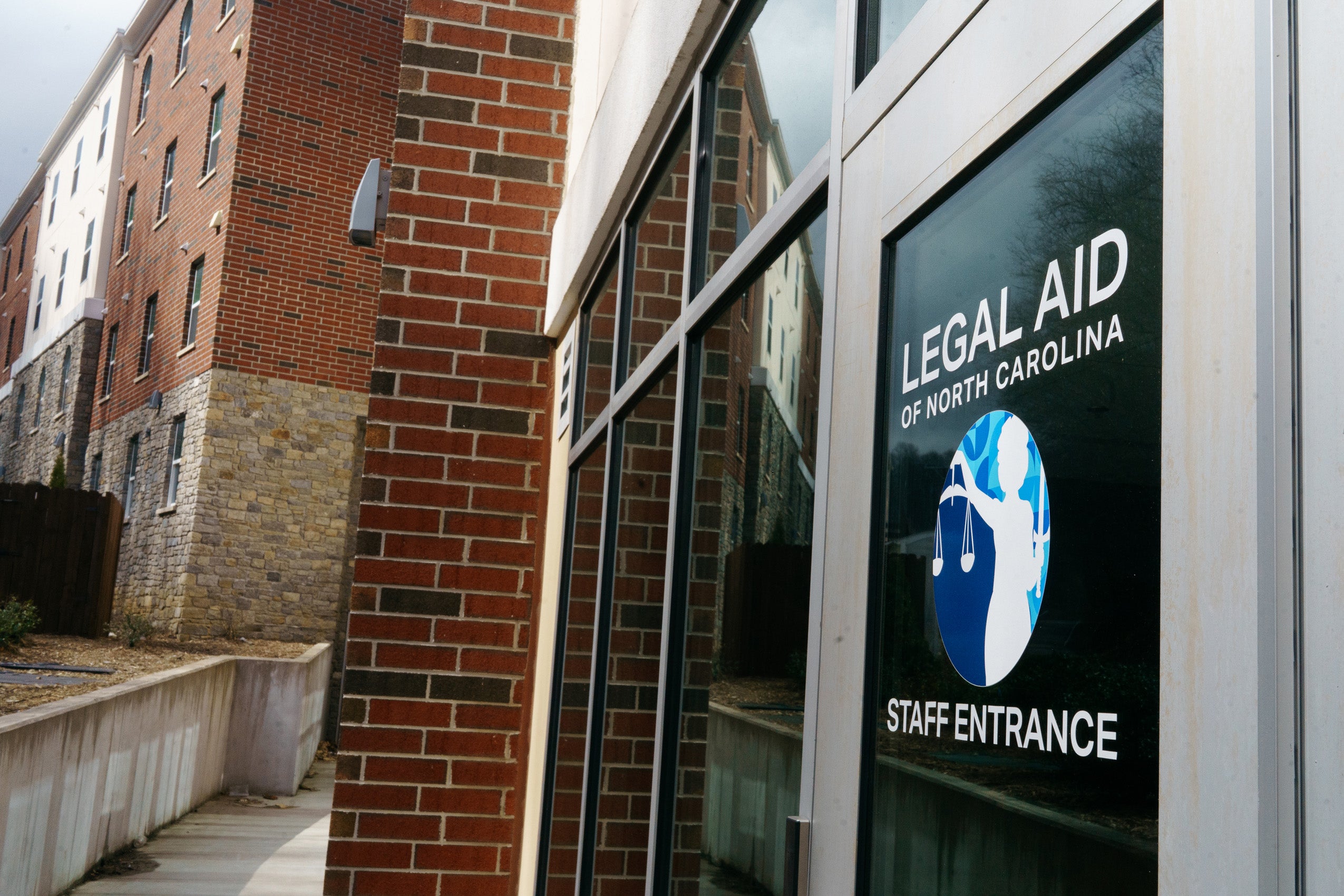
This recent group of students, she added, was no exception.
“Everybody has just reported how wonderful the experience was working with the Harvard students,” said Albritton, “how compassionate they were with our clients and with people in the community, how professional they were to work with, and the top-notch research and legal work that they did.”
One of those students was Nate Henry ’27, who was also in Cambridge last fall of 2024 watching the hurricane’s destruction unfold from 1,000 miles away and worrying about his friends and former colleagues. As a lieutenant in the U.S. Navy before coming to Harvard, Henry had been stationed in Augusta, Ga., and knew that many of the sailors he’d served with were in Helene’s path. Henry said taking part in the North Carolina trip was his “chance to help and give back to the community and the region that has meant so much to me.”
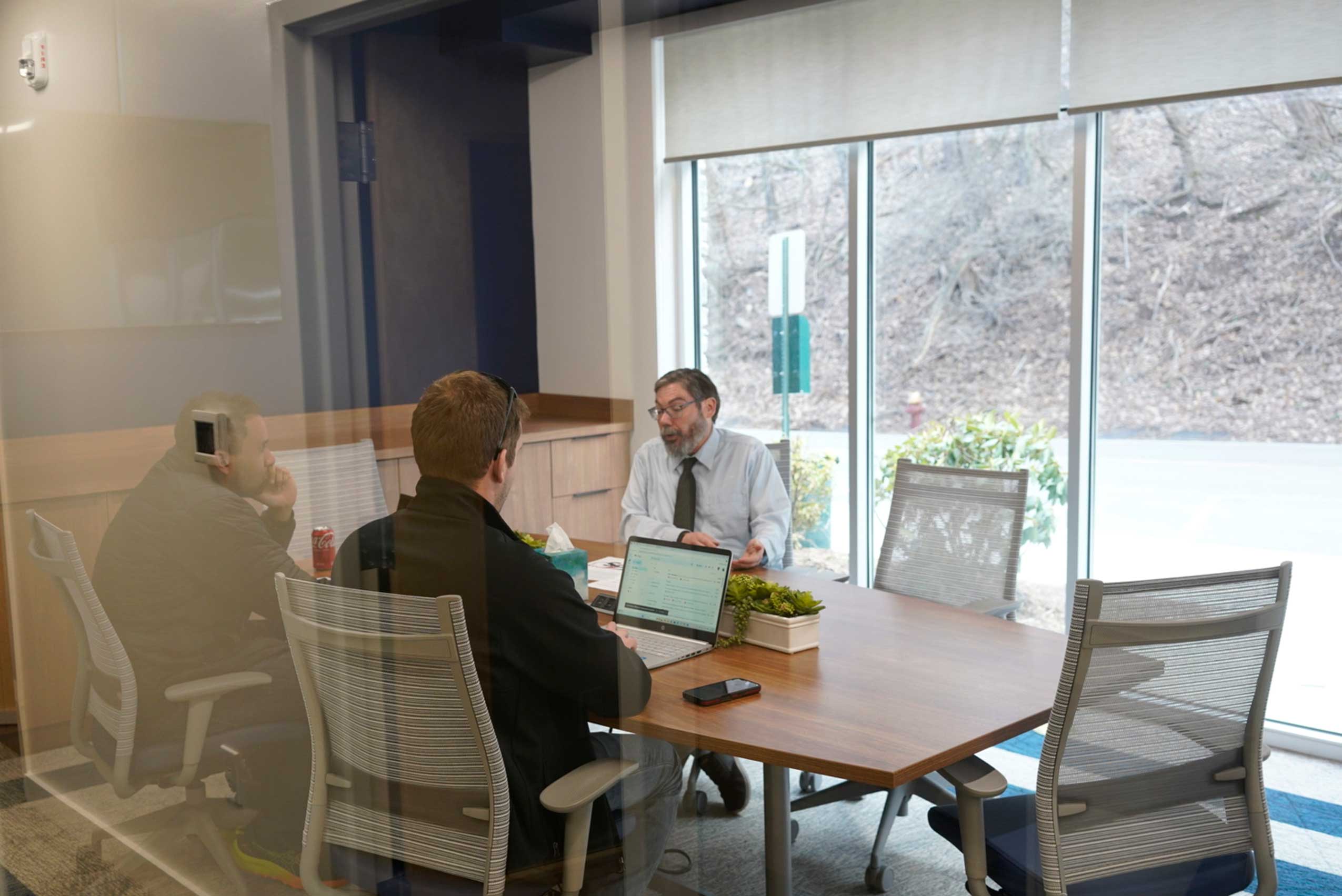
Early in their visit, the Harvard students staffed a walk-in clinic in Asheville, helping residents to file Federal Emergency Management Agency (FEMA) applications, apply for rent relief, and figure out how to compile documentation in order to prove land ownership. They also shadowed local attorneys at court proceedings and worked on issues of housing insecurity.
At the Asheville clinic, Lane and Henry met a man seeking compensation for storm-related damage. Helene’s driving wind and rain had waterlogged a crawl space in his home and crushed his gutters, but FEMA and his insurance company had largely refused to cover repairs, leaving him with a bill of $10,000. Lane and Henry encouraged the man to submit his before-and-after photos to his insurance company with an appeal. Another resident, who had been renting a room in a local home, turned to Lane and Henry to help him access FEMA’s $750 benefit for those affected by the storm. Because the landlord, who was also the homeowner, had filed an online claim first, the system automatically rejected the same address when the tenant tried to file his own application.
“We helped him file over the phone, and now it’s a waiting game,” said Henry. “But even if his claim ends up being denied, at least he has a track record that he can use to appeal to someone higher up to prove that he is a paying tenant, separate from the original filer, and entitled to the assistance.”
While in Boone, Lane and Henry witnessed further housing struggles up close. They shadowed local attorneys during client intake interviews, and attended court hearings, listening to the stories of local residents who were searching for help finding affordable places to live in the storm’s aftermath.
“As a college town, housing is always going to be a challenge,” said Lane of Boone, which is home to Appalachian State University, and where roughly 70 percent of the school’s 20,000 students live off campus. “The storm really exacerbated those challenges, depleting the already limited existing supply of housing and increasing demand because so many people have been displaced. We were hearing a lot of those frustrated sentiments coming through from people trying to navigate that housing insecurity.”
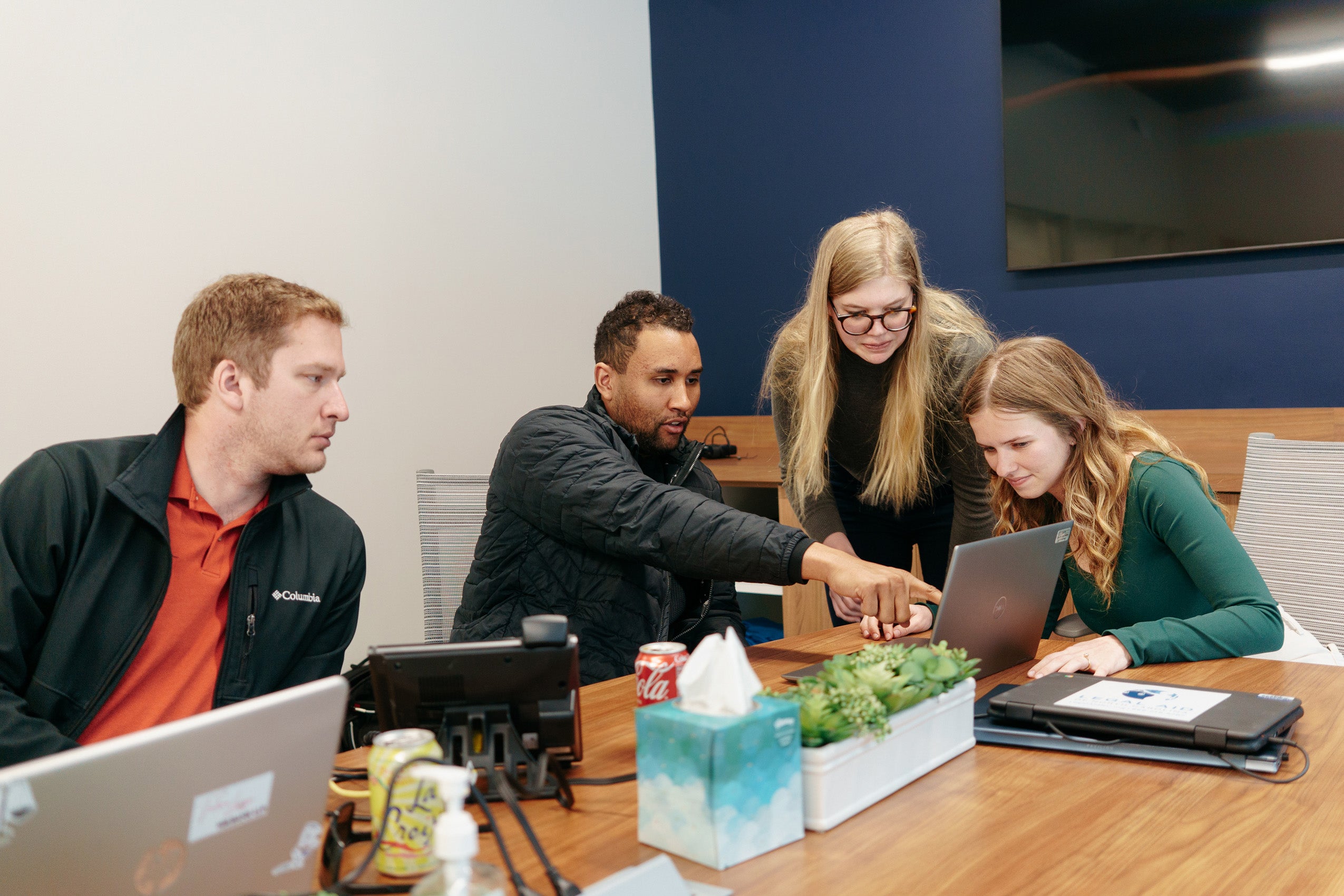
Lane said that learning the law in class was important but seeing how the law affects people’s daily lives gave him a new perspective. “This trip really drove home the idea that these concepts and theories we are learning in the classroom affect people in the real world,” said Lane, “and that there’s a desperate need for advocates, throughout the country, who can give all sorts of different people access to legal representation.”
For Henry, lending a helping hand to a region where he plans to live was a given. “This was exactly what I wanted to do,” Henry said. “Get involved and give back to the community that I came from, and where I want to go back to after law school.”
After graduating from the University of Chicago, Elaina Katz ’27 worked for a team overseeing Illinois’ emergency management agency, witnessing statewide responses to storms and other natural disasters. That experience, coupled with a realization that “it was the lawyers who were able to make more of a tangible impact,” when disaster strikes, inspired her to head to law school. She too signed onto the spring break trip.
Like Henry and Lane, Katz also worked at the Asheville walk-in clinic, helping residents whose aid applications had been denied. “We were really applying our analytical thinking skills from law school to assess why an appeal was rejected,” said Katz, “looking at what we could be emphasizing in their appeal that would either circumvent the reason for the rejection or just show that the rejection was flat out wrong.”
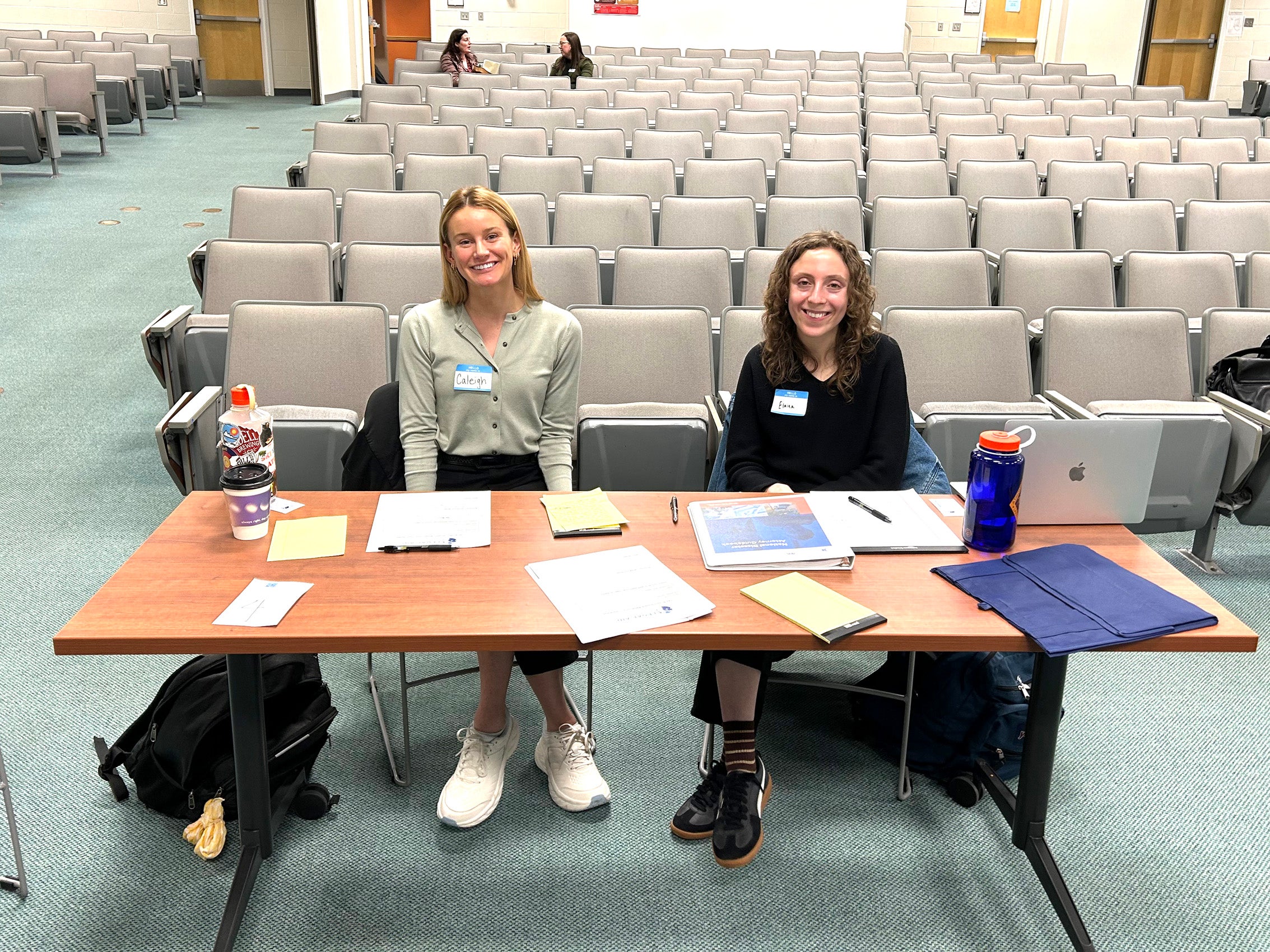
In one instance, FEMA had rejected a woman’s application because she was still living in her home despite a hazardous mold issue triggered by Helene. “We helped her make the case in her appeal that, while she continued to still live there, it didn’t mean her home was habitable,” said Katz.
Katz also worked in a local office in Sylva, N.C., researching an adverse-possession question for a client in the hope that they would be able to claim ownership of the house and access FEMA aid funds.
Katz honed her listening skills during the trip, she said, welcoming the chance to connect with clients in the Sylva office who just needed a friendly ear. “It was really important to also zoom out, and not think in a lawyerly, solutions-oriented way, but to just lean into listening and the humanness of the interactions,” said Katz. “It’s such an important skill to be able to realize when your expertise or the resources that you have behind you aren’t what’s needed in the moment, and that people left in a hard spot often really just need to talk.”
Katz, who is from Western Massachusetts, said that the hilly Carolina landscape reminded her of home and that it was difficult to take in some of the lasting destruction in person. During a trip to Asheville, the students toured an area that was once a cultural and arts destination that had been largely destroyed by floods.
“Looking at pictures of what it was like before and how it’s just so wildly different now, that was so hard to see,” said Katz, adding, “I just hope trips like these continue to be offered because they are so important.”
